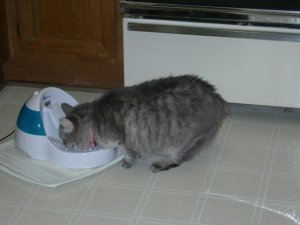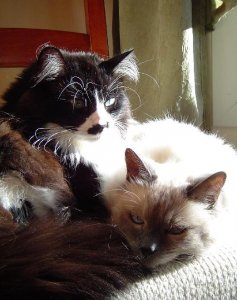AChiOAlumna
Brilliant_Rock
- Joined
- Mar 10, 2005
- Messages
- 1,678
She seems more like her old self this morning. She was out and about when I woke up and she ran to the food bowl (like she always does) as soon as I fed them. She''s still growling more than usual at Smokey, which leads me to believe that something happened between them yesterday while I was gone (another entrapment? Who knows?)
Still, I''m keeping an eye on her...
Still, I''m keeping an eye on her...






























300x240.png)